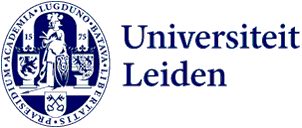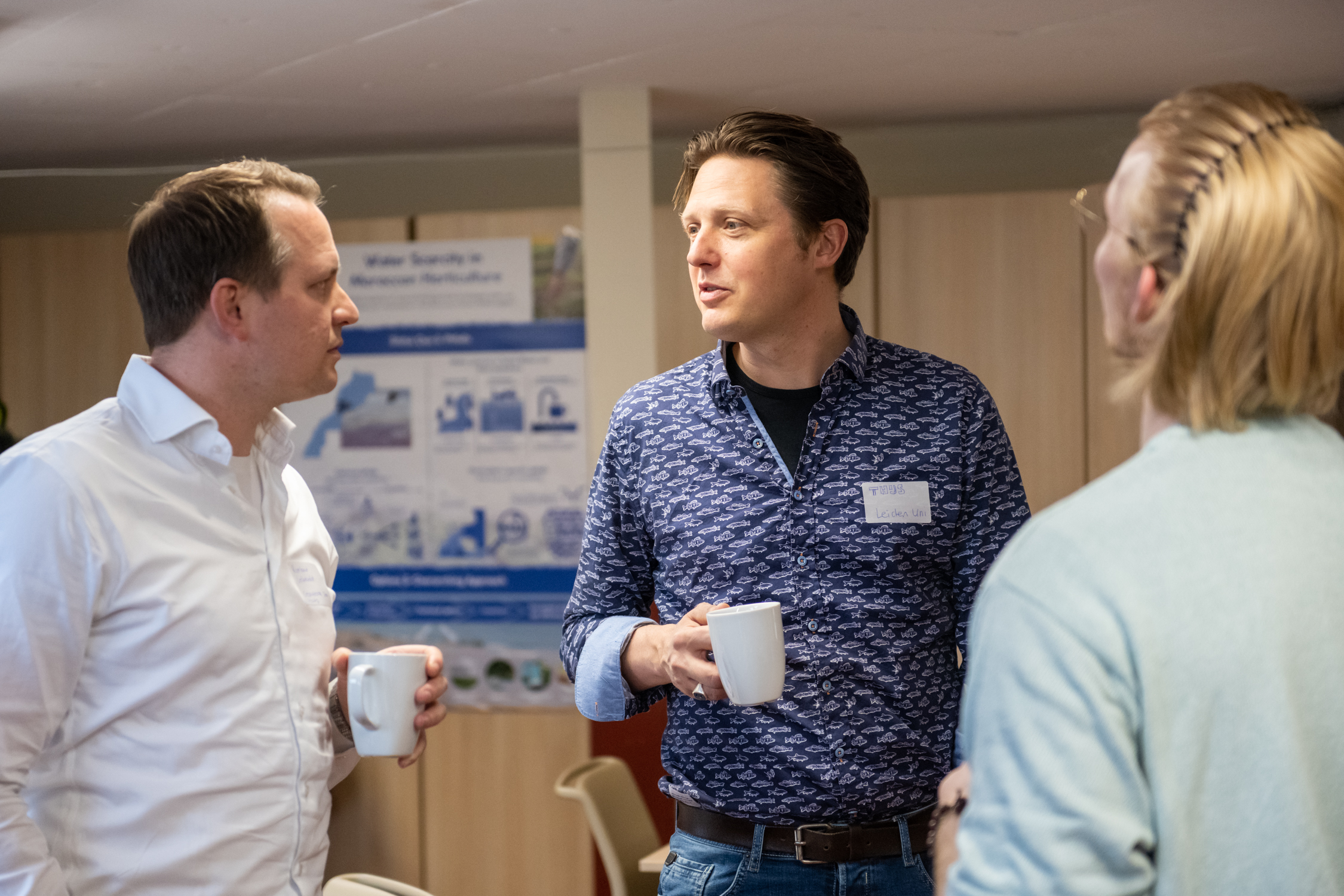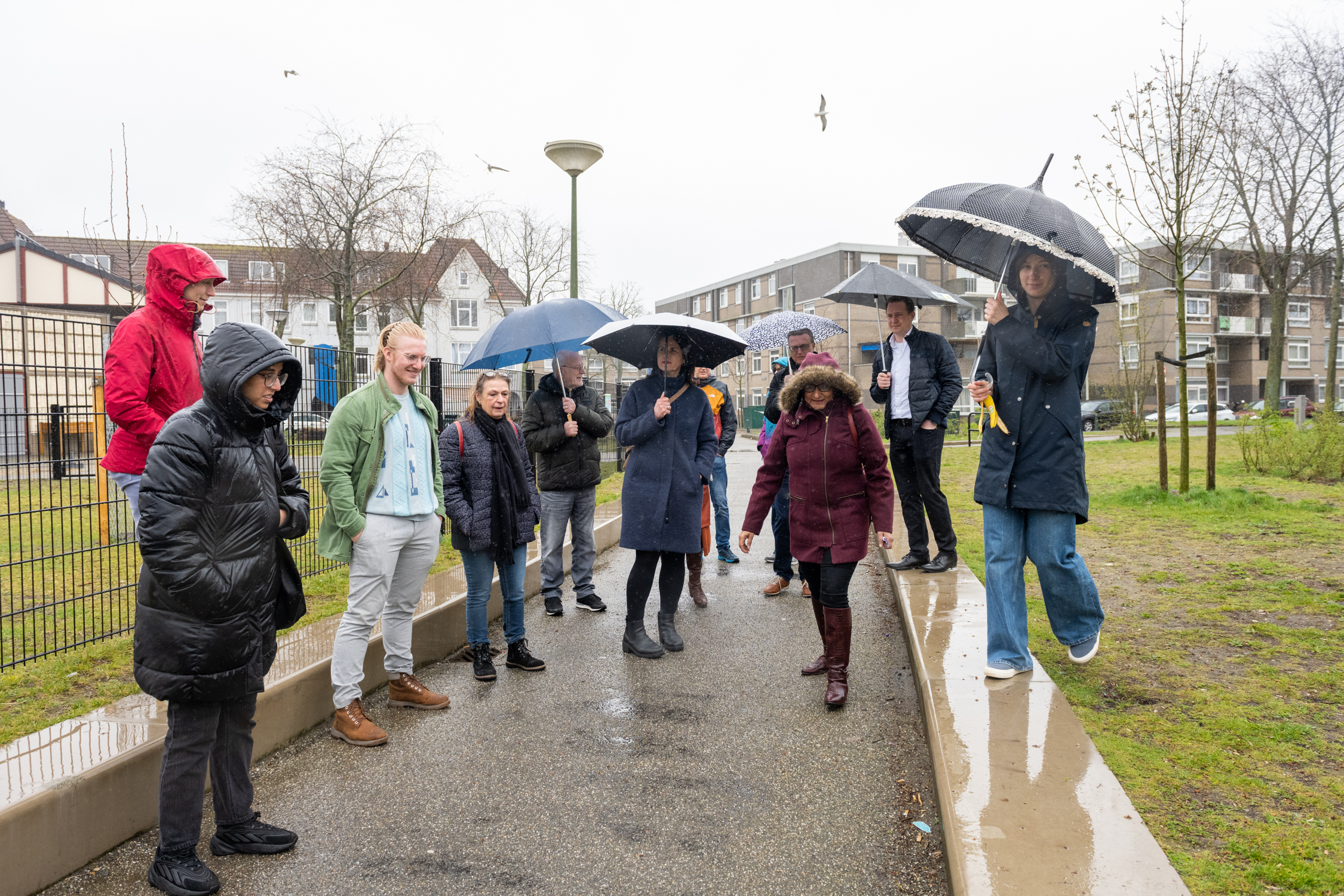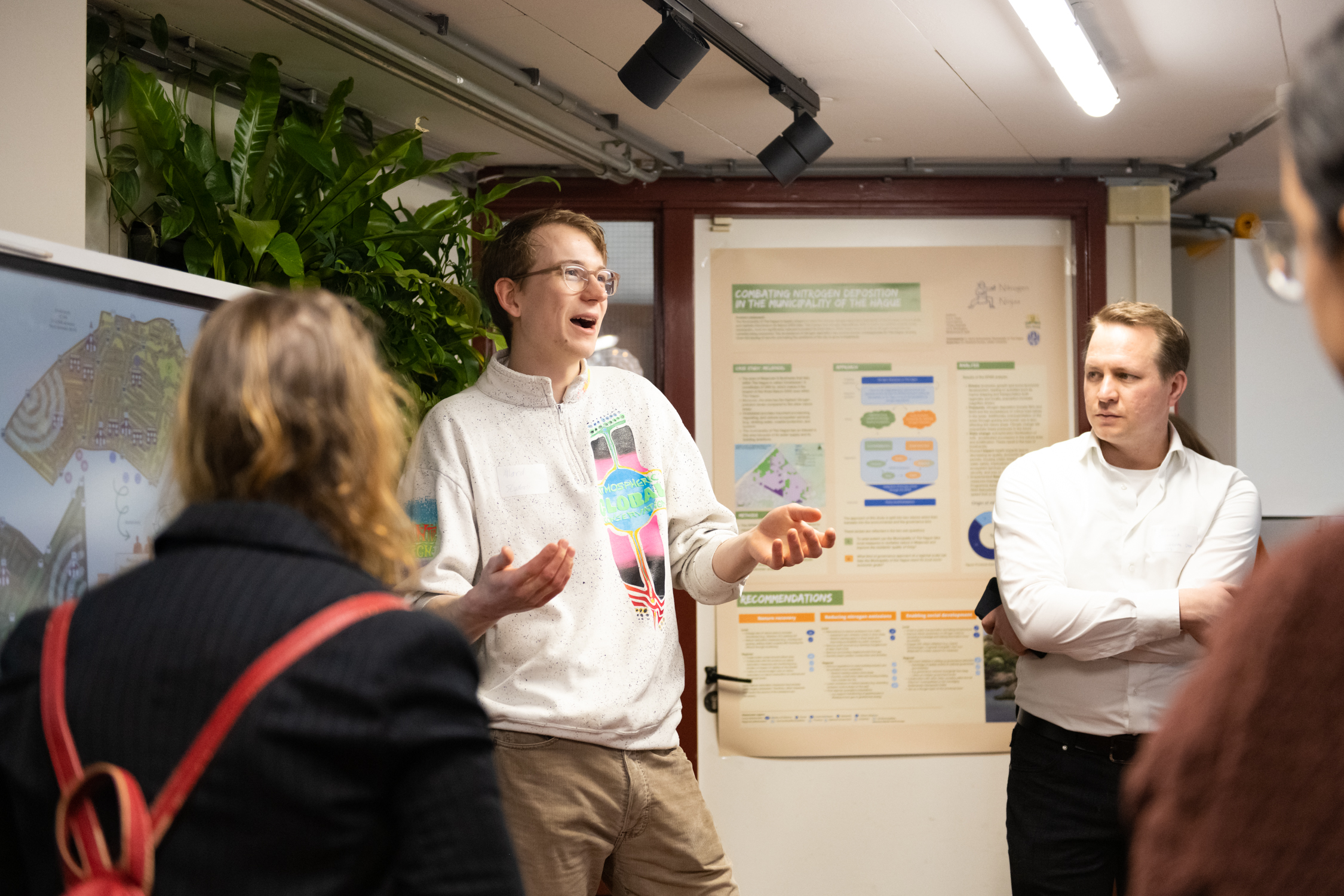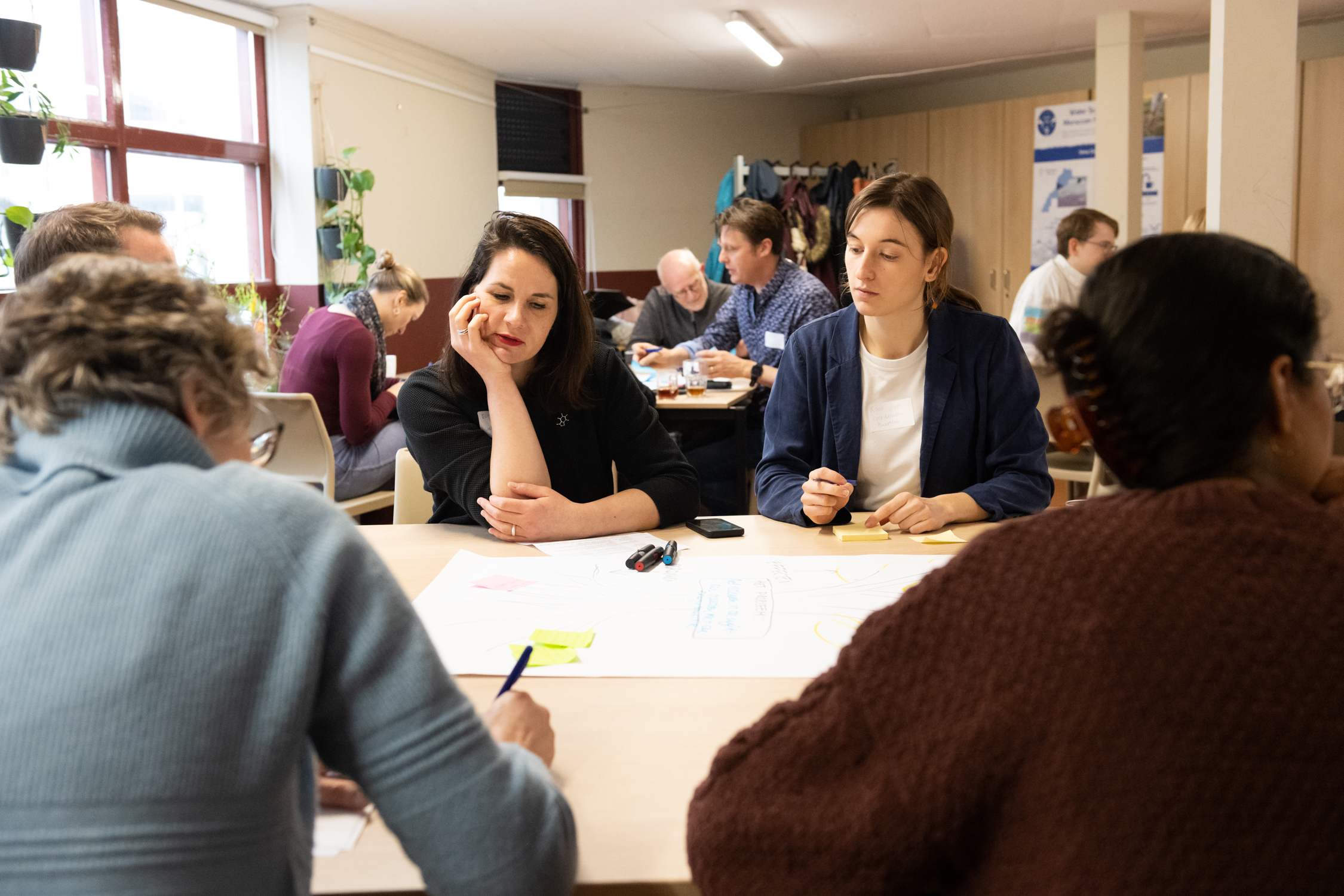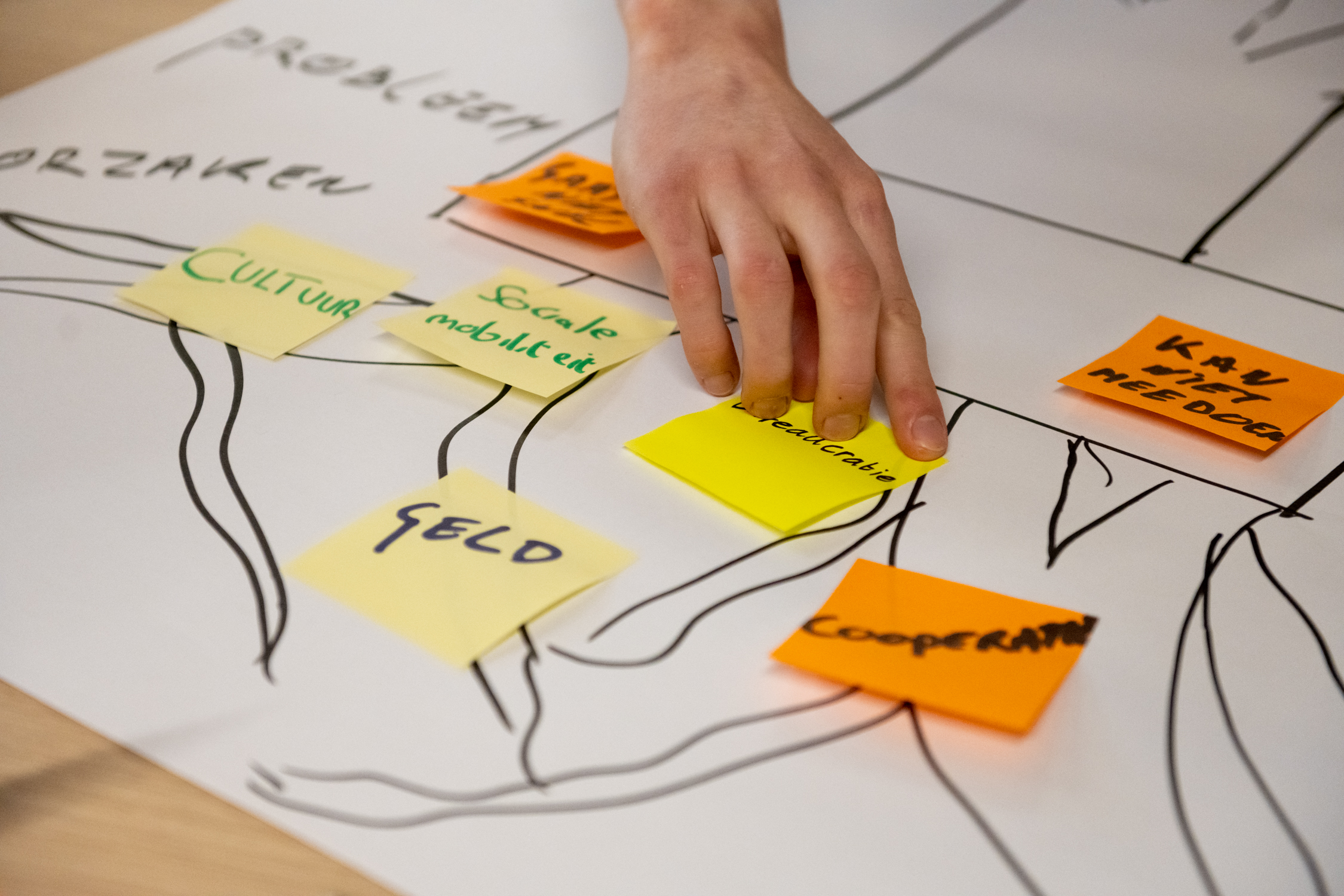
Buurtlab 070 launched – sustainability research in, by and for the community
Buurtlab 070 is a brand-new Leiden University project in which residents, researchers and students from The Hague work together to find climate, sustainability and biodiversity solutions. What do they expect of the lab?
Buurtlab 070 brings the residents of The Hague together with researchers and students from Leiden University to seek innovative sustainable living solutions in the community. They are working on various questions, such as: How do you encourage people to join in sustainable activities? And: How do you measure the impact of volunteer initiatives? But also: How is nature faring in the city? And: How do you create more space for nature in the city’s neighbourhoods? Or: What are the plastic pollution hotspots in the neighbourhoods? And: What are smart recycling methods?
Residents, community workers, researchers and students met at the first meeting in the Laakkwartier neighbourhood. They took a sustainability walk of the area with resident Tahira Abdoella, found out more from student Allard de Graaf about what kind of research students can do and set to work collating the first resident questions on sustainability.
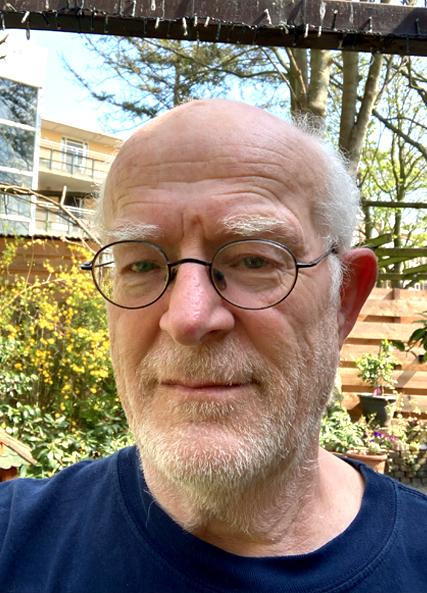
Theo Gruppe (70), lives on Van Musschenbroekstraat in Laakkwartier
‘Laakkwartier could serve as an example to other neighbourhoods’
‘The energy transition, one of Buurtlab 070’s topics, is obviously what a lot of people are talking about. That’s why I came, from the RadiLaak residents’ initiative. I found the first Buurtlab meeting really interesting. Students spoke about their research into energy investments in another The Hague neighbourhood, for instance.
‘At the end of the meeting I suggested that we should first draw up a big map of the neighbourhood and find out whether there are or will be more energy transition initiatives in Laakkwartier before we start coming up with solutions to energy problems. How many homes are owner occupied and how many rented? Who lives there? What concerns does the community have? The sooner you show you can help residents, the sooner they’ll join the energy transition discussion.
‘And once you have the map, you can also go to the municipality, government or even the EU for a grant. They stipulate that projects should make the energy transition possible for different resident groups. Such grants are attainable. There’s an underground water tank in the neighbourhood that was built with European money. Laakkwartier could also serve as an example to other neighbourhoods in The Hague or even in the Netherlands when it comes to the energy transition. I’m keen to see what happens next.’

Onderzoeker Thijs Bosker hopes that Buurtlab 070 will be a breeding ground for creativity
‘I think there are lots of questions in the community’
‘As a researcher, I want to work not only with other researchers and students but also with other members of society. This gives you the chance to research other kinds of question: How can we document biodiversity in the city and protect it as a community? How serious is the city’s plastic pollution problem and how do you get the community to help reduce this? Or how do you make sure the energy transition is inclusive?
‘This kind of collaboration is important for the city’s sustainable development, but it can be hard to get it off the ground. Buurtlab 070 wants to remove barriers and be a breeding ground for exchanging creative ideas and questions. Residents, researchers and students will be able to tackle complex issues together. This is a great opportunity to discover what kinds of questions the residents have about the climate or biodiversity. But it can also be that researchers ask the residents a question, about how they view energy transition or biodiversity, for instance. Or that residents take part in research and collect information in their neighbourhood. In short: everyone can do their bit at Buurtlab 070.
‘We’re also going to look at whether practical questions or ideas from Buurtlab 070 can be incorporated in the teaching or research on various degree programmes. This could be a short eight-week study in which, for example, students come to a particular neighbourhood to find an answer to a resident question. But questions may also be so big that they are better suited to research that spans several years.
‘We want at any rate to give all the results back to the neighbourhoods, for instance in the shape of posters or drop-in evenings at community centres and libraries. I think it will be fantastic to research particular topics in the coming years in various parts of The Hague, from biodiversity to energy transition to pollution.’

Thanks to the community, Allard de Graaf, a second-year Governance of Sustainability master’s student, gained new insights about problems with the energy transition at Buurtlab 070.
‘I think people will be surprised by the opportunities that Buurtlab 070 presents’
‘I was at the Buurtlab 070 opening in Laakkwartier and found it really interesting to hear the energy transition problems residents were facing. What I hadn’t considered at all, for example, was that lots of people who live in the neighbourhood haven’t registered with the municipality. That makes it difficult for public organisations to determine how much in grants a neighbourhood needs exactly to switch to sustainable energy forms.
‘And lots of people are in temporary accommodation in a neighbourhood or street, which means they don’t forge ties with the community. These are really useful insights. I’ve already taken plenty of courses on community participation but had never thought about these factors.
‘I therefore think Buurtlab 070 is going to be really useful to everyone. Residents will be able to talk to researchers and people from the municipality who really will listen to their problems. For researchers and students Buurtlab 070 is a place of inspiration and reflection. If they have to tell residents about their research, this is a chance for them to think about their work and whether what they are saying makes sense.
‘And Buurtlab 070 is a really nice way to meet others. I didn’t see any kind of distance between residents and researchers: it’s a friendly and welcoming environment. I think people will be surprised by the opportunities Buurtlab 070 presents.’
Text: Jan Joost Aten
Photos of the meeting: Patrice Borger
Illustration: Anne Bertels
